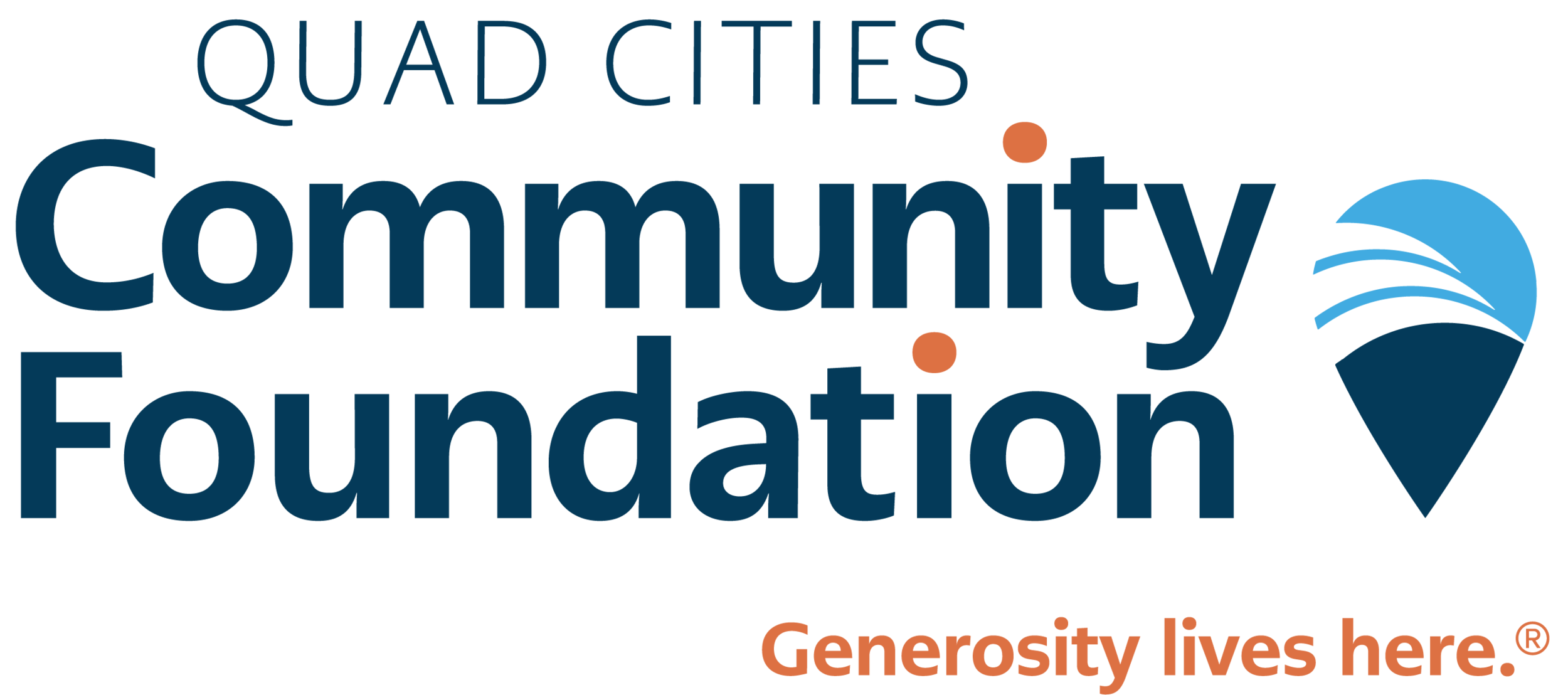A grant to keep Clock ticking
Rock Island flew Pride flags donated by Clock, Inc downtown this past June
Clock, Inc started with a simple question.
In the fall of 2018, Chase Norris spent two months leading an LGBT+ youth group as part of his masters in counselor education program at Western Illinois University in Moline. As the group’s time together neared its end, he knew that without more resources available for young LGBT+ people in the Quad Cities, there was more work to do.
“I asked them what they would want, and they wanted a community center,” Norris recalled. “My immediate reaction was, ‘That’s not realistic.’ And they said, ‘Don’t ask if you don’t want the answer.’ Touché.” He went home and began Googling “how to start a nonprofit.”
Just over four years later, Clock is a buzzing hub of activity, offering everything from counseling, community groups, and mentoring to a library, clothing closet, and chest binder program—all ideas contributed by the people Clock serves out of its 4,700–square-foot Rock Island home. As it’s grown, the nonprofit has reached not only hundreds of LGBT+ community members but also allies who are inspired by its mission and believe in fostering a more equitable and inclusive Quad Cities.
One of those supporters is Sue Hafkemeyer. As president and CEO of the Quad Cities Community Foundation, she can recommend unrestricted grants from the Quad Cities Community Impact Fund to support pressing needs and opportunities outside of the Community Foundation’s regular grantmaking cycles. She recently made a $10,000 Presidential Grant to help sustain Clock’s operations and programs.
What’s in a name?
“Clocks are always consistent—they come back around,” explained Norris. The hands of the clock in the organization’s logo are set to 6:28, representing June 28, 1969, the date of the Stonewall Uprising and a turning point for LGBT+ activism. At the same time, the name Clock, Inc is designed to be indirect enough to keep community members safe. “And now is the time for change,” Norris added. Learn more about Clock, Inc here.
“This organization is doing transformational, life-saving work for teens and their families,” said Hafkemeyer. “There’s no doubt in my mind that this grant is a vital investment in our community.”
Hafkemeyer was introduced to Clock just days after joining the Community Foundation last June. At CEOLink, the Community Foundation’s monthly peer learning session for nonprofit executive directors, Norris gave a presentation on how to better support LGBT+ people and organizations. The conversation continued in the months afterward, with Hafkemeyer recently visiting Clock’s space.
“It meant a lot that Sue still firmly believes in what we’re doing,” said Norris, who volunteers on the Community Foundation’s Nonprofit Capacity Building Grants committee. “Essentially, this grant allowed us to keep our doors open. We were asking, ‘Do we pay rent or pay our employees?’”
For many growing nonprofits, keeping the doors open may be harder than it sounds—and unrestricted grants and gifts can offer critical lifelines that allow them to continue advancing their mission while building toward financial stability.
“Grants for general operating make a big difference,” said Norris. “Our staff can’t work for free. We need internet to function. We have to pay our electric bill to keep the lights on, and heating this building is expensive. And without being able to pay for those things, we can’t grow Clock as an organization or plan for our future.”
“When we make grants to fund general operations and programs, we’re sending a message to nonprofits that we trust them as the experts on their mission and services,” added Hafkemeyer. “Just as Chase has grown Clock by genuinely listening to the needs of the community, we can provide charitable resources that directly support the things nonprofits know they need.”
In 2021, Clock received Operations and Program Grants through the Community Foundation from the Amy Helpenstell Foundation Fund and the Roy E. Murray Fund.
“We’re still finding out that people don’t know we exist, so we’re getting our name out there,” said Norris. To anyone who wants to support a more equitable community, he recommends beginning with curiosity. “Reach out, ask all the questions, be open-minded to learning. It can be overwhelming, but start with a question.”

